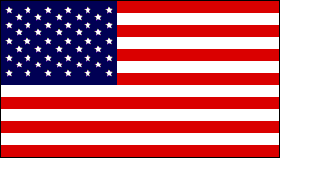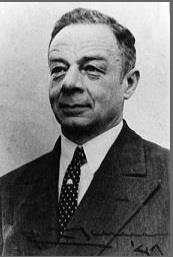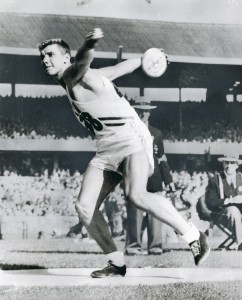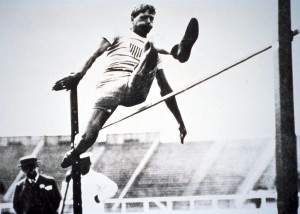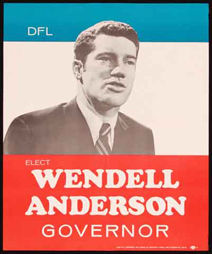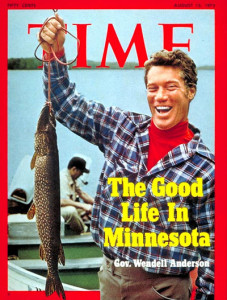On 28 June 1914, 100 years ago today, the inciting incident which led to World War I, occurred. This was the assassination of Austrian Archduke Franz Ferdinand by Gavrilo Princip in Sarajevo, Bosnia. World War I is considered to have officially started one month later, 28 July, when Austro-Hungary officially declared war on Serbia.
Although there had been only 5 celebrations of the Olympic Games to that date (6 if you count 1906), many of the Olympic athletes served in the military during the war and some of them did not return.
Canadian doctor-soldier John McCrae penned the poem “In Flanders Fields” in memory of the brave men who lost their lives in what has been called The Great War, as if any war could be great. McCrae wrote:
In Flanders fields the poppies blow
Between the crosses, row on row,
That mark our place; and in the sky
The larks, still bravely singing, fly
Scarce heard amid the guns below.
We are the Dead. Short days ago
We lived, felt dawn, saw sunset glow,
Loved and were loved, and now we lie
In Flanders fields.
Take up our quarrel with the foe:
To you from failing hands we throw
The torch; be yours to hold it high.
If ye break faith with us who die
We shall not sleep, though poppies grow
In Flanders fields.
In their memory, here are the 131 Olympians that we have been able to identify as being killed, died, or missing in action as a result of World War I. RIP.
[table]
Olympian,NOC,Sport,Era,Fate
Andrey Akimov,RUS,FTB,1912,†1916. Killed during World War I.
Gordon Alexander,GBR,FEN,1912,†24 April 1917. Killed in action during World War I.
Laurie Anderson,GBR,ATH,1912,†9 November 1914. Killed in action while serving with the Cheshire Regiment.
William Anderson,GBR,ATH,1906,†April 1915. Killed in action in France.
Henry Ashington,GBR,ATH,1912,†31 January 1917. Killed in action in France.
Louis Bach,FRA,FTB,1900,†16 September 1914. Killed in action.
Fritz Bartholomae,GER,ROW,1912,†12 September 1915. Killed in action during World War I.
Georg Baumann,RUS,WRE,1912,Missing-in-action during World War I but date and place not known.
Béla Békessy,HUN,FEN,1912,†6 July 1916. Killed in action during World War I.
Isaac Bentham,GBR,WAP,1912,†15 May 1917. Killed in action during Battle of Arras.
Renon Boissière,FRA,ATH,1912,†25 September 1915. Killed in action in World War I.
Henri Bonnefoy,FRA,SHO,1908,†19 August 1914. Killed in action during World War I.
Hermann von Bönninghausen,GER,ATH,1908-12,†26 January 1919. Died from wounds from being shot in the face in World War I.
Hermann Bosch,GER,FTB,1912,†16 July 1916. Killed in action in World War I.
Jean Bouin,FRA,ATH,1908-12,†29 September 1914. Killed in action by friendly fire.
Hanns Braun,GER,ATH,1908-12,†9 October 1918. Died as a fighter pilot near Saint-Quentin; Aisne; France in World War I.
Karl Braunsteiner,AUT,FTB,1912,†19 April 1916. Died as a prisoner of war.
Kurt Bretting,GER,SWI,1912,†30 May 1918. Killed in action during World War I.
Heinrich Burkowitz,GER,ATH,1912,†November 1918. Missing in action in November 1918 somewhere in Belgium.
Edmund Bury,GBR,RAQ,1908,†5 December 1915. With the 11th Battalion King’s Royal Rifle Corps he was killed in action in France during World War I and is buried in Rue-Petillon Military Cemetery in Fleurbaix.
George Butterfield,GBR,ATH,1908,†24 September 1917. Killed in action in France.
Oswald Carver,GBR,ROW,1908,†7 June 1915. With the 1st/2nd East Lancashire Royal Engineers he was killed in action in Turkey in World War I and is buried in the Lancashire Landing Cemetery.
Joseph Caullé,FRA,ATH,1912,†1 October 1915. Killed in action during World War I.
Ralph Chalmers,GBR,FEN,1908,†8 May 1915. Killed in action during World War I.
Noel Chavasse,GBR,ATH,1908,†4 August 1917. He is one of only three men to have been awarded a bar to the Victoria Cross. Serving as a captain in the RAMC he was first awarded the VC in 1916 and a bar posthumously in 1917.
Geoffrey Coles,GBR,SHO,1908,†27 January 1916. Killed in action during World War I.
André Corvington,HAI,FEN,1900,†13 December 1918. Killed in action in World War I near Reims.
Percy Courtman,GBR,SWI,1908-12,†2 June 1917. Part of 6th Battalion Manchester Regiment he was killed in action in World War I. Buried at Neuville-Bourjonval British Cemetery.
Harry Crank,GBR,DIV,1908,†22 October 1917. Killed in action near Ypres Belgium.
Robert Davies,GBR,SHO,1912,†9 September 1916. A member of the 1st/9th Batallion; London Regiment (Queen Victoria’s Rifles) he was killed in action in the Somme in France in World War I.
Louis de Champsavin,FRA,EQU,1900,†20 December 1916. Killed in action during World War I.
Felix Debax,FRA,FEN,1900,†25 August 1914. Killed in action in World War I.
Alex Decouteau,CAN,ATH,1912,†17 October 1917. Killed in action in the Battle of Passchendale.
Oszkár Demján,HUN,SWI,1912,†4 September 1914. Killed in action during World War I.
Charles Devendeville,FRA,SWI/WAP,1900,†19 September 1914. Killed in action.
Karl Baron von Diepurg,GER,IOC,1909-14,†25 October 1914. Killed in action during World War I.
Joseph Dines,GBR,FTB,1912,†27 September 1918. He was killed in Pas de Calais as a second lieutenant on the Western front during World War I.
Jimmy Duffy,CAN,ATH,1912,†23 April 1915. In September 1913 he joined the Canadian Army and was assigned to the 91st Argyle Regiment. On 23 April 1915 he was fatally wounded near Ypres Belgium.
Hugh Durant,GBR,MOP/SHO,1912,†21 January 1916. With the 9th Queen’s Royal Lancers he was killed in action in France in World War I and is buried in the Vermelles British Cemetery.
George Fairbairn,GBR,ROW,1908,†20 June 1915. Killed in action in the Somme in France during World War I.
René Fenouillière,FRA,FTB,1908,†4 November 1916. Killed in action during World War I.
Léon Flameng,FRA,CYC,1896,†2 January 1917. Killed in action during World War I.
Alfred Flaxman,GBR,ATH,1908,†1 July 1916. Killed in an attack on the enemy positions at Gommecourt.
Bert Gayler,GBR,CYC,1912,†23 June 1917. Killed by rifle fire during an ambush in a valley near Kotkai Bozi Khel.
Bernhard von Gaza,GER,ROW,1908,†25 September 1917. Killed in action during World War I in Belgium.
Thomas Gillespie,GBR,ROW,1912,†18 October 1914. A lieutenant with the King’s Own Scottish Borderers he was killed in action in France in World War I and is buried in Le Touret Memorial.
Henry Goldsmith,GBR,ROW,1908,†9 May 1915. Killed in action at Fromelles.
Lajos Gönczy,HUN,ATH,1900-06,†4 December 1915. Killed in action in area of Galicia and Lodomeria.
Carl Heinrich Goßler,GER,ROW,1900,†9 September 1914. Killed in action during World War I.
Wyndham Halswelle,GBR,ATH,1906-08,†31 March 1915. Killed by a sniper’s bullet in France.
George Hawkins,GBR,ATH,1908,†22 September 1917. During World War I he served as a Gunner with the Royal Artillery and was killed in action when a shell exploded in the doorway of a dugout while he was on outpost duty.
Harold Hawkins,GBR,SHO,1908,†16 June 1917. Reported missing between Bullecourt and Croisilles. When last seen he was wounded; lying in a very forward position; which unfortunately had to be abandoned.
Cecil Healy,ANZ/AUS,SWI,1906-12,†29 August 1918. Killed in action in World War I.
Max Herrmann,GER,ATH,1912,†29 January 1915. Killed in action in World War I.
George Hutson,GBR,ATH,1912,†14 September 1914. Killed in action only five weeks after the outbreak of World War I.
Albert Jenicot,FRA,FTB,1908,†22 February 1916. An under-lieutenant with the 165th Regiment D Infantry he was killed in action in World War I.
Walther Jesinghaus,GER,GYM,1912,†1918. Killed in action during World War I.
Ernest Keeley,RSA,SHO,1912,†23 July 1918. A 2nd lieutenant with the 4th Regiment (South African Infantry Unit) he was killed in action in World War I and is buried in the Ploegsteert Memorial.
Frederick Kelly,GBR,ROW,1908,†13 November 1916. Killed in action during World War I.
Paul Kenna,GBR,EQU,1912,†30 August 1915. Killed in action at the Battle of Gallipoli.
Alister Kirby,GBR,ROW,1912,†29 March 1917. Served as a captain in the Rifle Brigade and died from illness in 1917.
Frederick Kitching,GBR,ATH,1908,†1914. Killed in action in World War I.
Adolf Kofler,AUT,CYC,1912,†13 April 1915. Killed in action during World War I.
Nikolay Kynin,RUS,FTB,1912,†1916. Killed during World War I.
Ivan Laing,GBR,HOK,1908,†30 November 1917. With the 2nd Battalion; Coldstream Guards he was killed in action in France during World War I and is buried in Metz-en-Couture Communal Cemetery; British Extension.
Octave Lapize,FRA,CYC,1908,†14 July 1917. Killed when his plane was shot down near Verdun.
Béla von Las-Torres,HUN,SWI,1908-12,†13 October 1915. Killed in action in Italy during World War I.
Henry Leeke,GBR,ATH,1908,†29 May 1915. Killed in action on the eve of his battalion’s departure for Gallipoli.
Erich Lehmann,GER,ATH,1912,†9 July 1918. Listed as missing in action in World War I.
Feliks Leparsky,RUS,FEN,1912,†10 January 1917. Killed in action in World War I.
Bertrand Count de Lesseps,FRA,FEN,1908,†28 August 1918. Killed in action during World War I.
Ismaël de Lesseps,FRA,FEN,1908,†30 September 1915. Killed in action during World War I.
Eduard von Lütcken,GER,EQU,1912,†15 September 1914. Killed in action during World War I.
Georges Lutz,FRA,CYC,1908,†31 January 1915. Killed in action in World War I.
Willy Lützow,GER,SWI,1912,†1916. Killed in action during World War I.
William Lyshon,USA,WRE,1912,†13 October 1918. Killed in the final days of World War I.
Duncan Mackinnon,GBR,ROW,1908,†9 October 1917. Killed in action at Ypres in the Battle of Passchendaele.
Gilchrist Maclagan,GBR,ROW,1908,†25 April 1915. Killed in action in Pilckem Ridge at the Second Battle of Ypres.
Leopold Mayer,AUT,SWI,1906,†21 September 1914. Killed in action during World War I.
Alphonse Meignant,FRA,ROW,1912,†4 November 1914. Killed at First Battle of Ypres during World War I.
Robert Merz,AUT,FTB,1912,†30 August 1914. Killed in action during World War I.
Georg Mickler,GER,ATH,1912,†14 June 1915. Killed in action during World War I somewhere in Poland.
Felice Milano (DNS),ITA,FTB,1912,†11 November 1915. Killed at the Fourth Battle of the Isonzo during World War I.
Percival Molson,CAN,ATH,1904,†5 July 1917. Killed in action when hit by mortar fire while attempting to rescue a fallen friend on the outskirts of Avignon France.
Alfred Motté,FRA,ATH,1908-12,†31 October 1918. Killed in action in World War I.
István Mudin,HUN,ATH,1906-08,†22 July 1918. Killed in action during World War I.
Edward Nash,GBR,EQU,1912,†21 February 1915. Killed in action during World War I.
Georges de la Nézière,FRA,ATH,1896,†9 October 1914. Killed in action during World War I.
Grigory Nikitin,RUS,FTB,1912,†1917. Killed during World War I.
Harcourt Ommundsen,GBR,SHO,1908-12,†19 September 1915. A Lieutenant in the Honourable Artillery Company when he was killed at the Battle of Ieper in World War I.
Alan Patterson,GBR,ATH,1908-12,†14 March 1916. Commissioned into the Royal Field Artillery he was killed in action only two days after his 30th birthday.
Árpád Pédery,HUN,GYM,1912,†21 October 1914. Killed in action during World War I.
Jacques Person,GER,ATH,1912,†15 July 1915. From Alsace; killed in action in Flanders as a member of the “7. Thüringische Infanterie Regiment Nr. 96”.
William Philo,GBR,BOX,1908,†7 July 1916. Killed in World War I during the battle of the Somme in France.
Hermann Plaskuda,GER,FEN,1912,†21 March 1918. Killed in action in World War II. His grave is in the war cemetary in St. Quentin France.
Léon Ponscarme,FRA,CYC,1900,†24 November 1916. Killed in action in World War I in Verdun.
Kenneth Powell,GBR,ATH/TEN,1908-12,†18 February 1915. Killed in action while serving as a private in the HAC.
Friedrich Karl Prince von Preußen,GER,EQU,1912,†6 April 1917. During a flight on 21 March 1917 he was forced to land with a bullet in his engine and a slight wound to his foot. He landed his Albatros aircraft in no-man’s land but while running towards his own lines he was severely wounded in the back by Australian troops. He was taken into Australian war captivity where he died from his injuries on 6 April 1917 at Saint-Étienne-du-Rouvray.
Reggie Pridmore,GBR,HOK,1908,†13 March 1918. Served as a major in the Royal Horse & Field Artillery winning a Military Cross on the Somme before being killed in action in Italy.
Joseph Racine,FRA,CYC,1912,†28 October 1914. With the 113th Regiment Infantry he was killed in action in World War I.
Thomas Raddall,GBR,SHO,1908,†9 August 1918. With the 8th Battalion Canadian Infantry Manitoba Regiment he was killed in action in France in World War I and is buried in the Manitoba Cemetery in Caix.
Maurice Raoul-Duval,FRA,POL,1900,†5 May 1916. Killed in action during World War I.
Josef Rieder,GER,CYC,1912,†13 July 1916. Killed in action during World War I.
John Robinson,GBR,HOK,1908,†23 August 1916. Commissioned into the North Staffordshire Regiment he was soon promoted to captain but died from injuries received in the Mesopotamian campaign.
Patrick Roche,GBR,ATH,1908,†7 June 1917. A lieutenant in the Royal Engineers he won an MC in World War I and was later killed in action.
Albert Rowland,ANZ,ATH,1908,†23 July 1918. Killed in action during the Second Battle of The Marne.
Marius Royet (DNS),FRA,FTB,1908,†1915. Killed during World War I.
Maurice Salomez,FRA,ATH,1900,†7 August 1916. Killed in action in World War I.
Ronald Sanderson,GBR,ROW,1908,†17 April 1918. Killed in action near Ypres.
Heinrich Schneidereit,GER,TOW/WLT,1906,†30 September 1915. Killed in action as an artillery officer in France during World War I.
André Six,FRA,SWI,1900,†1914. Killed in action.
Pierre Six,FRA,FTB,1908,†7 July 1916. Killed in action during World War I.
Michel Soalhat,FRA,ATH,1906,†25 September 1915. Killed in action in World War I.
Robert Somers-Smith,GBR,ROW,1908,†1 July 1916. Killed in action on the first day of the Battle of the Somme.
Geoffrey Taylor,CAN,ROW,1908-12,†24 April 1915. Missing; presumed killed; during the Second Battle of Ypres.
Felix Tekusch (DNS),AUT,FTB,1912,†21 May 1916. Killed in action during World War I.
Waldemar Tietgens,GER,ROW,1900,†28 July 1917. Killed in action during World War I.
Dragutin Tomašević,SRB,ATH,1912,†1915. Killed in action during World War I in Serbia
Justin Vialaret,FRA,FTB,1908,†30 September 1916. Killed in action in World War I.
Charles Vigurs,GBR,GYM,1908-12,†22 February 1917. With the 11th Battalion Royal Warwickshire Regiment he was killed in action in France in World War I and is buried in the Maroc British Cemetery in Grenay.
Amon Ritter von Gregurich,HUN,FEN,1900,†28 June 1915. Killed in action during World War I.
Edmond Wallace,FRA,FEN,1900,†18 August 1915. Killed in action in World War I.
Rudolf Watzl,AUT,WRE,1906,†15 August 1915. Died from illness during World War I.
Arthur Wear,USA,TEN,1904,†6 November 1918. As a result of refusing to obtain proper treatment for a probable perforated duodenal ulcer; he died; still commanding his battalion; during the Meuse-Argonne fighting.
Arthur Wilde,GBR,SHO,1908,†21 January 1916. With the 1st/6th Battalion South Staffordshire Regiment he was killed in action in World War I and is buried in the Arras Memorial.
Tony Wilding,ANZ,TEN,1912,†9 May 1915. Joined the British army and was leading an armoured car unit when he was killed at Aubers Ridge during the Battle of Neuve-Chapelle.
Victor Willems,BEL,FEN,1908-12,†1918. Killed in action during World War I.
Edward Williams,GBR,ROW,1908,†12 August 1915. With the 2nd Battalion Grenadier Guards he was killed in action in France in World War I and is buried in the St. Venant Communal Cemetery.
Herbert Wilson,GBR,POL,1908,†11 April 1917. Was a captain with the Royal Horse Guards near Arras. Died in the preliminary skirmishes leading up to the Battle of Paschendaele in Ypres Belgium.
Richard Yorke,GBR,ATH,1908-12,†22 December 1914. Killed in action in World War I while serving as a sergeant in the London Scottish.
Béla Zulawszky,HUN,FEN,1908-12,†24 October 1914. Killed in action during World War I.
[/table]
